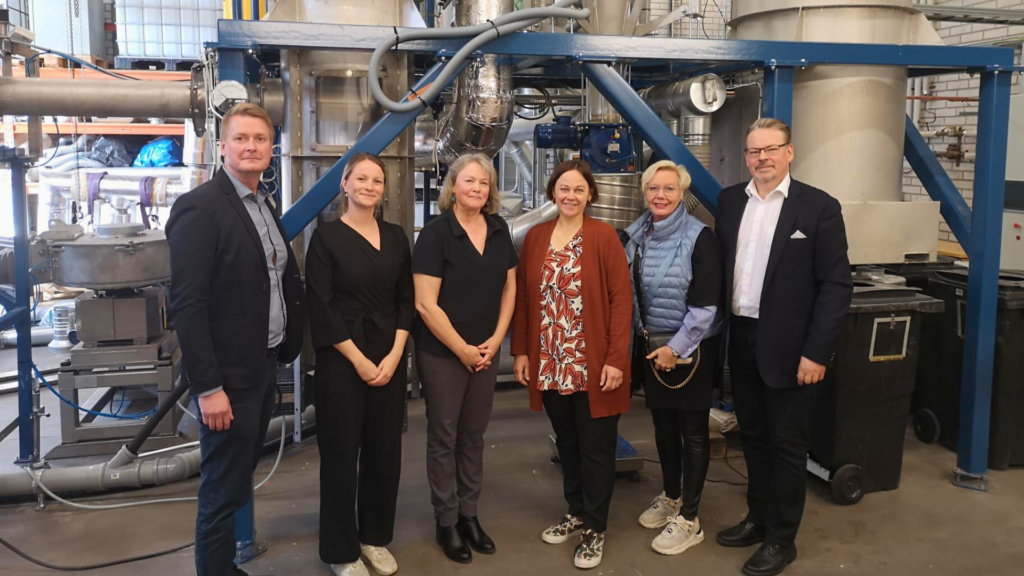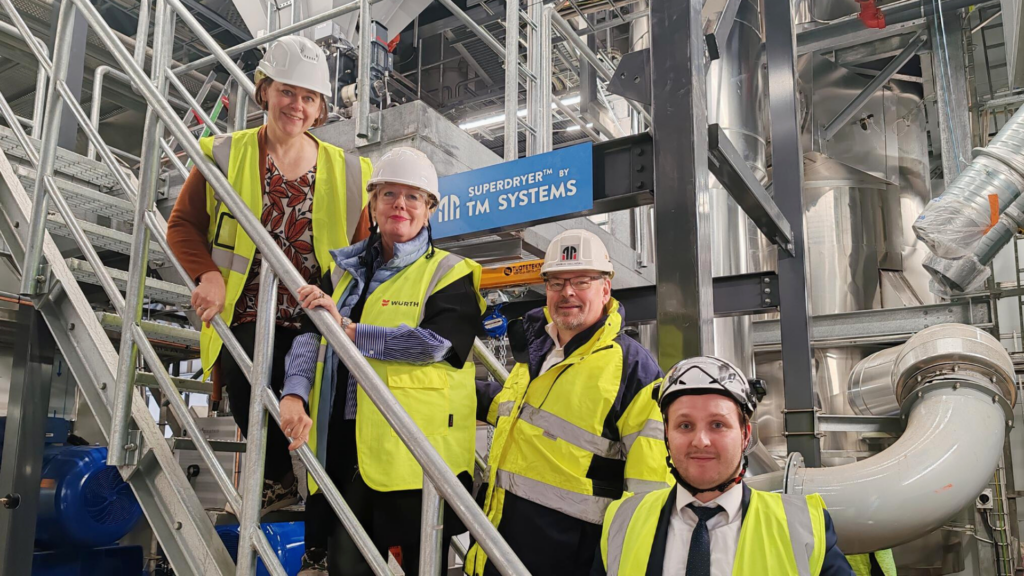Earlier this week, representatives from the Finnish Forest Industries, Paula Lehtomäki, Kaisu Karvala, and Atte Isoaho, visited TM Systems’ research and test facility. Following this, the day continued with a visit to a nearby biomass refinery, about which we will share more information soon.
Reducing emissions in the processing and manufacturing industries requires technological innovation and the development of low-emission energy and raw material production, while maximizing the use of by-products. One of our primary focuses during the discussions was the utilization of side streams and biomass to ensure that resources are used efficiently.

Picture: Our team and guests at the research facility. Behind you can see a 1:10 industrial-sized SuperDryer, where over 50 materials have been tested successfully.
Biomass from agriculture and forestry is rich in fibers, which have a wide range of applications. Currently, a significant portion of this valuable biomass is wasted by being burned while wet. TM Systems showcased various cases where we collaborate with clients to explore more efficient utilization of side streams, such as sludges, slurries and digestates from the forest industry that can be used in biogas production with higher energy content.
We at TM Systems are committed to transitioning to renewable and low-carbon energy solutions through bioenergy and are exploring alternative fuels to replace wood in certain applications. More wood can be left in the forests and used in products that, on the other hand, replace fossil-based raw materials.
The challenges of recycling cardboard and paper in Europe and the U.S. were also a key topic of discussion, as these materials cannot currently be utilized to the extent needed. Local solutions are required for more efficient use of collected materials. By reducing the use of virgin fibers and maximizing the utilization of waste energy and water, we contribute to more sustainable production processes.
SuperDryer provides both economic benefits, through profitable biomass processing, and environmental benefits, by making the drying process energy-efficient and emission-free. The visitors were particularly interested in our portfolio’s strong emphasis on energy efficiency and pioneering technologies, and we are motivated to continue our journey!
